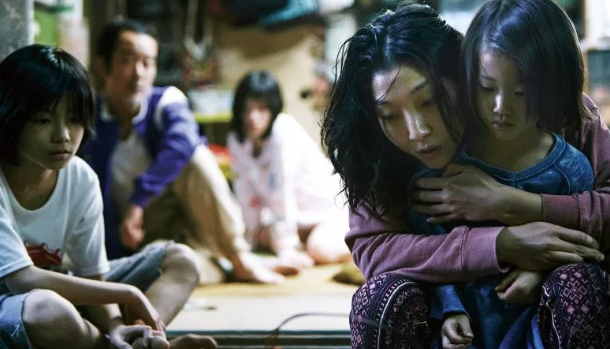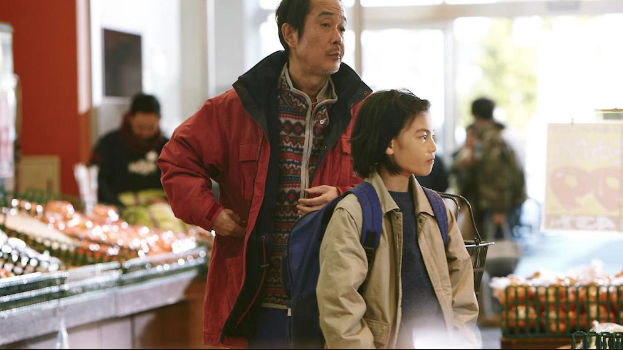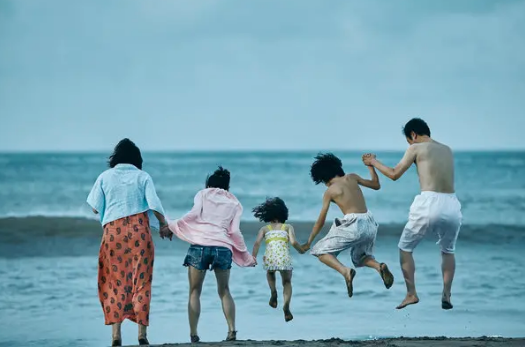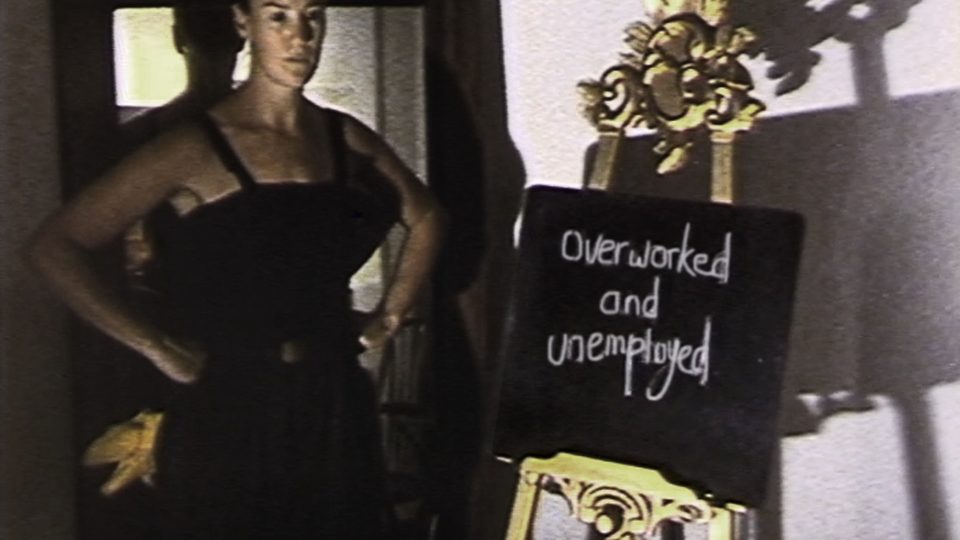
Marginalized families have their own mythologies as far as their portrayal in popular culture goes. There is plenty of it in one of this year’s most lauded films on the festival circuit, Alice Rohrwacher’s Happy as Lazzaro (2018), in which a group of Italian farmers are rescued from their village. They had been held in servitude, and are taken to the city, where they carry out bare subsistence in an unheated metal container. In one scene, they are seen dining on potato chips. Rohrwacher’s message, perhaps all too clear, is that in transition from feudalism to capitalism the poorest have often fared worse. Whether this claim holds economically on a global scale is a different question. Yet there is no denying that in the current sociopolitical climate we have a good reason to be alarmed, policies across that put the most vulnerable in harm’s way.
Marginality and family also lie at the heart of Hirokazu Koreeda’s Shoplifters (2018), the foreign film Oscar runner-up, to which The New York Times’ critic Manohla Dargis assigned a tagline: “A Family That Steals Together Stays Together.” A joke, yet telling as far as where family and togetherness stand in these trying times. While Americans and the world watch children being harmed and killed trying to cross the United States border, dying on the way and in detention, a film like Shoplifters truly resonates on multiple levels.
One day, after a trip to the supermarket where they steal necessities, from food to personal hygiene products, father (Lily Franky as Osamu) and son, Shota (Jyo Kairi), come upon a little girl rummaging in the garbage. The four-year-old Yuri (Miyu Sasaki) appears to be hungry. The two take her home. The family—made up of wife Nobuyo (Sakura Andô), grandma (renowned actress Kirin Kiki), and sister, Aki (Mayu Matsuoka)—learns that the shy, fragile child has marks of abuse. They debate if they should return her to her rightful parents, given their crowded, shabby home, and precarious living. But Yuri is not keen to return. When Osamu and Nobuyo carry her home, they realize that she lives under a constant threat of violence. The couple hears husband and wife, presumably Yuri’s parents’ arguing, and realized they cannot just drop her off.

Hirokazu Koreeda’s Shoplifters (2018)
Yuri’s presence is a boon to some, particularly to the wonderfully comical grandma. Also to Nobuyo, who despite her wisecrack, tough-as-nails veneer possesses an innate maternal touch. But she is a plague to the older Shota. Shota is jealous of the attention that the family lavishes on Yuri. This is partly because Shota is not Osamu and Nobuyo’s son. There is a question of just how Osamu “rescued” the boy. Did he kidnap Shota from a car in a parking lot? Was Shota in danger? And what exactly was Osamu doing when he came upon Shota? Robbing Shota’s parents’ car? There is ambiguity in the relationship, and just how long Shota has been living with his “adoptive” parents. Yet the story is not Shota’s personal quest to embrace his new parents, to finally call Osamu, “dad,” or to help Yuri in her adaptation.
Shota has bigger questions to contend with. Saddled with a partner on his supermarket and small mom-and-pops runs, he must teach Yuri how to steal. He shows her how to effectively distract supermarket staff and to communicate with hand signals. But this training also raises questions. One day, a small-shop owner asks Shota, “Not to bring your sister into this.” There is a sense that there is simply an age at which life’s hard lessons are just too much. Childhood must be protected. Whether that option exists for Shota himself or not, he does begin to question what his future life is going to be like.

Hirokazu Koreeda’s Shoplifters (2018)
Koreeda aborts these dilemmas halfway, when he overturns his own plot. Thus far he seemed bend on a magical realist tale. As in Happy as Lazzaro, the law does not interfere much in whatever happenstance or crime the family gets embroiled in. Their schemes are small; they pass unnoticed in the vast universe of corporate greed and global market forces. Where some abscond with millions, these ruffians get away with stealing shampoo and candy. And they work too, at least Nobuyo does. Cynically enough one day her boss leaves her to bargain with her coworker as to which one of them will be sacked. Nobuyo is blackmailed, not for the petty things she had nabbed on the job, but to protect Yuri’s identity.
All in vain, as eventually the law does barrel down on them. Here Koreeda strikes a blunt blow, and reveals Nobuyo and Osamu’s past. What are we to do with this nugget? Koreeda’s narrative strokes are thick, just as are Rohrwacher’s in Happy as Lazzaro. But he also leaves ample space for anecdotal details: grandma’s gambling habits and petty schemes, Aki’s tender scenes with clients at the peep show where she works. Osamu and Nobuyo’s sexually fizzled, yet intensely convivial and reassuring bond. These smaller scenes breathe a real intensity into his work, and make it one of the most engaging Asian films this year. Arguably much more thrilling than the formally more accomplished but shallower Burning by Lee Chang-dong (also an Oscar contender). Where Chang-dong casts a large net in deep water and comes up with air, Koreeda waddles in ankle-deep, with a tiny fishhook, yet dredges up wonders.
The ending of Shoplifters is open. Is it the film a tragedy, a tragicomedy? Is Yuri’s gaze beyond the balcony of her family home, where she returns in the aftermath of the couple’s apprehension, hopeful? Or is it a death wish? In the film’s resistance to yield to our emotional demands lies the secret of Koreeda’s prodigious talent.
Shoplifters is currently playing at Nitehawk Prospect Park and is due to play at Nitehawk Williamsburg Jan 5 & 6
For more Asian films reviewed on our site, also check Ela Bittencourt on Yang Zhang’s Up the Mountain

